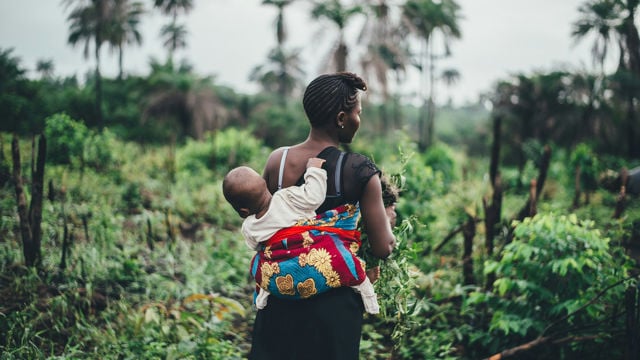
Health
Norwegian aid emphasizes strengthening national health systems, particularly when it comes to primary health care services to achieve universal health coverage (UHC). This includes the development of national institutions to plan, finance and offer basic health services as well as monitoring disease development and introducing necessary measures to ensure long-term results and sustainability.
Why
The health systems in poor countries face major challenges, both with communicable and non-communicable diseases. Financial constraints, lack of qualified health personnel and inadequate medical equipment worsen the situation. According to the World Bank, over 75% of deaths in these countries by 2030 are expected to be due to non-communicable diseases, as these diseases increase with the countries' economic development. Climate change, conflicts and demographic changes also contribute to increasing health challenges. Poor countries spend an average of only US$41 per person per year on health, compared to US$3,915 in high-income countries, resulting in poor access to necessary health services and medicines
What
Norwegian health aid focuses on strengthening national health systems, especially primary health care, in order to achieve universal health coverage (UHC). This means that everyone must have access to basic health services without serious financial burden. Norway supports the development of national institutions to plan, finance and offer health services, as well as monitor disease development and implement the necessary measures. Through Norad, the effort is organized as a portfolio with the aim of strengthening health systems as a whole, including programs that cut across diseases and health challenges. Norway also participates in international forums and collaborates with global funds and multilateral organisations
Where
The main part of Norwegian health aid is channeled through global health initiatives, fund mechanisms and multilateral organisations, such as the World Health Organization (WHO), the World Bank and the Coalition for Epidemic Preparedness Innovations (CEPI). The effort is primarily aimed at low- and lower-middle-income countries, with a particular focus on Africa south of the Sahara. In addition, Norway supports institutions that work in individual countries, for example in strengthening health information systems and capacity for public health initiatives. Norway also collaborates with Norwegian institutions such as the University of Oslo and the Institute of Public Health to strengthen health systems globally. Cooperation with civil society organizations and support for regional production of medicines and vaccines are also important parts of Norway's efforts.